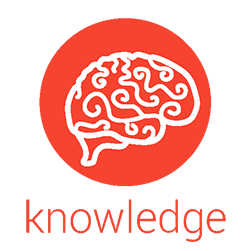Professional goals are crucial elements in career planning and achievement. Like a compass, concrete goals help us get back on our chosen trajectory when the unavoidable distractions from inside and outside work push us off the path. Goals can help us chart that path, and can even help with leveraging experiences as growth opportunities that might otherwise seem more like “drifting” than purposeful, forward momentum. This course will provide instruction and guidance on setting, documenting, and evaluating progress towards, reasonable short-, medium-, and long-term professional goals. During the course we will discuss identification and formulation of goals; sequencing; the importance and generation of evidence of achievement; and utilization of this evidence to create a plan for next-stage goal setting. This interactive workshop will comprise a few brief lectures, individual work, and small- and large-group discussions.
Pre-conference registration will include submission of at least one specific short term (up to 1 year to complete); medium term (1-3 years to complete); and long term (3-10 years to complete) goal. These professional goals will not be shared unless the participant chooses to, but are essential for some focal point for workshop activities that are relevant for each individual. Participants should bring a laptop and a current version of their CV or resume, and come prepared for active and reflective participation.
If there's a bit of R code that you copy and paste repeatedly, package it in a function! User-written functions are a great way to increase your effectiveness in many contexts: scripts, R Markdown documents, R notebooks, Shiny apps, and, of course, R packages. Compared with highly repetitive code, functions can increase code quality, while also reducing programmer aggravation. Many principles of design and process work well across all those domains. This workshop should be useful to those new to writing functions, as well as those more experienced, e.g., ready to start writing packages. We will finish off with some coverage of functional programming and how to use it for iteration in R.




 View Presentation
Mary W. Gray, American University
View Presentation
Mary W. Gray, American University


 View Presentation
Jessica A Lavery, Memorial Sloan Kettering Cancer Center
View Presentation
Jessica A Lavery, Memorial Sloan Kettering Cancer Center

 View Presentation
Haema Nilakanta, University of Minnesota
View Presentation
Haema Nilakanta, University of Minnesota
 View Presentation
Anna Elizabeth Tranfaglia, Reserve Bank of Philadelphia
View Presentation
Anna Elizabeth Tranfaglia, Reserve Bank of Philadelphia
 View Presentation
Phuong T Vu, University of Washington
View Presentation
Phuong T Vu, University of Washington
 View Presentation
Staci Hepler, Wake Forest University
View Presentation
Staci Hepler, Wake Forest University
 View Presentation
JOELLE MBATCHOU, THE UNIVERSITY OF CHICAGO
View Presentation
JOELLE MBATCHOU, THE UNIVERSITY OF CHICAGO
 View Presentation
Amy Marie Oksol, Kansas City Federal Reserve Bank
View Presentation
Amy Marie Oksol, Kansas City Federal Reserve Bank
 View Presentation
Olivia Hong, AT&T Research Labs
View Presentation
Olivia Hong, AT&T Research Labs
 View Presentation
Xiao Hui Tai, Carnegie Mellon University
View Presentation
Xiao Hui Tai, Carnegie Mellon University
 View Presentation
Mikaela A Miller, Children's Mercy Hospital
View Presentation
Mikaela A Miller, Children's Mercy Hospital
 View Presentation
Alyssa Hope Columbus, University of California, Irvine
View Presentation
Alyssa Hope Columbus, University of California, Irvine
 View Presentation
Thao Tran, University of Wisconsin - Eau Claire
View Presentation
Thao Tran, University of Wisconsin - Eau Claire
 View Presentation
Natascha Camille Bolden, California State University San Bernardino and UCI Extension
View Presentation
Natascha Camille Bolden, California State University San Bernardino and UCI Extension
 View Presentation
Xuan T Pham, Rockhurst University
View Presentation
Xuan T Pham, Rockhurst University
 View Presentation
Zhanna Galochkina, UNM Comprehensive Cancer Center
View Presentation
Zhanna Galochkina, UNM Comprehensive Cancer Center
 View Presentation
Rachel Hacker, Nielsen
View Presentation
Rachel Hacker, Nielsen
 View Presentation
Allison Shay Theobold, Montana State University
View Presentation
Allison Shay Theobold, Montana State University


